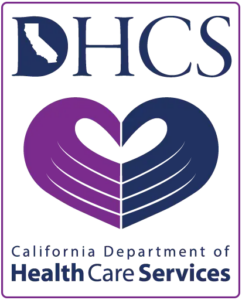Quitting alcohol cold turkey means stopping all drinking abruptly, without reducing the amount gradually. For people who have been drinking heavily or for a long time, quitting this way can be risky. The effects of stopping drinking suddenly range from mild discomfort to life-threatening complications.
Alcohol has a direct impact on the brain and central nervous system. Over time, the brain adapts to the constant presence of alcohol, which acts as a depressant. When alcohol is removed suddenly, these adaptations can cause the nervous system to become overactive.
According to the National Institute on Alcohol Abuse and Alcoholism, nearly 29.5 million people in the United States had alcohol use disorder in 2022. For many, stopping drinking cold turkey can cause withdrawal symptoms that sometimes require medical attention.
At Surf City Detox, we prioritize the safety of each person during alcohol cessation. The risks of quitting alcohol cold turkey are serious, especially for those with a history of heavy or long-term use.
Quitting Alcohol Cold Turkey: What Happens When You Stop Drinking?
When someone drinks alcohol regularly, their brain chemistry changes to maintain balance. Alcohol acts as a depressant, increasing GABA (a calming neurotransmitter) and decreasing glutamate (an excitatory neurotransmitter). Over time, the brain compensates by producing less GABA and more glutamate.
When you quit drinking alcohol cold turkey, the brain suddenly loses alcohol’s depressant effects but continues producing high levels of glutamate. This creates a hyperactive nervous system that can trigger dangerous withdrawal symptoms.
Key changes that occur:
- Chemical imbalance: GABA levels drop while glutamate remains elevated
- Nervous system hyperactivity: The brain becomes overstimulated without alcohol’s calming effects
- Physical instability: Heart rate, blood pressure, and body temperature can become irregular
The effects of stopping drinking cold turkey depend on how much and how long someone has been drinking, their age, and overall health. Medical supervision helps manage these unpredictable changes safely.
Alcohol Withdrawal Symptomps and Timeline
Alcohol withdrawal symptoms follow a general pattern, though each person’s experience varies. Understanding the alcohol withdrawal timeline helps explain why quitting drinking cold turkey can be dangerous.
The first signs of withdrawal often feel like a severe hangover, but can quickly worsen. Insomnia after quitting drinking can also persist well beyond the initial withdrawal phase.
- Anxiety and restlessness
- Headaches and nausea
- Sweating and tremors
- Difficulty sleeping
These cold turkey alcohol symptoms might seem manageable initially, but they can progress rapidly in people with severe alcohol dependence.
As the nervous system becomes more unstable, symptoms intensify:
- High blood pressure: Can reach dangerous levels requiring medical intervention
- Irregular heartbeat: May cause chest pain or breathing difficulties
- Confusion: Thinking becomes unclear, and memory problems develop
- Fever: Body temperature rises as the nervous system struggles
This period marks when stopping alcohol cold turkey becomes most risky. Medical monitoring can prevent complications from escalating.
The most dangerous withdrawal symptoms typically peak during this window:
- Hallucinations (seeing, hearing, or feeling things that aren’t real)
- Seizures (uncontrolled electrical activity in the brain)
- Delirium tremens symptoms (severe confusion, agitation, unstable vital signs)
Research shows that 3-5% of people who quit drinking alcohol cold turkey develop severe complications. This risk explains why the question “Can an alcoholic stop cold turkey?” doesn’t have a simple answer.
Delirium Tremens and Life-Threatening Risks
Delirium tremens (DTs) represents the most severe form of alcohol withdrawal. This medical emergency typically occurs 48-96 hours after the last drink and can be fatal without immediate treatment.
DTs affect the entire nervous system, causing:
- Extreme confusion: Complete disorientation to time, place, and people
- Severe agitation: Uncontrollable restlessness and combative behavior
- Vivid hallucinations: Intense visual, auditory, or tactile experiences
- High fever: Often exceeding 104°F (40°C)
- Cardiovascular instability: Rapid heart rate, dangerous blood pressure changes
Without medical treatment, delirium tremens has a mortality rate of up to 37%. With proper medical care, this drops to 1-5%. Risk factors include previous withdrawal episodes, older age, concurrent medical conditions, and a history of heavy drinking.
The unpredictability of DTs demonstrates why what happens when an alcoholic quits drinking cold turkey can be life-threatening. Early medical intervention can prevent progression to this dangerous stage.
Is it Safe to Quit Alcohol Cold Turkey?
The safety of quitting alcohol cold turkey depends entirely on individual risk factors. Some people can stop drinking with minimal complications, while others face serious medical dangers.
High-risk individuals who require medical supervision include:
- Heavy drinkers: Those consuming large amounts daily for extended periods
- Previous severe withdrawal: Anyone who experienced seizures or DTs before
- Older adults: Age increases withdrawal complications
- Multiple health conditions: Heart disease, liver problems, or mental health disorders
Lower-risk individuals might include those with mild to moderate drinking patterns, no withdrawal history, and good overall health. However, even these individuals can experience unpredictable symptoms.
The question of whether quitting alcohol cold turkey is safe has no universal answer. Medical evaluation helps determine individual risk and appropriate treatment approaches. Even people at lower risk benefit from professional guidance during withdrawal. Understanding detox vs withdrawal further underscores the importance of safe, supervised care.

Cold Turkey vs Tapering: Which Approach is Safer?
Two main methods exist for stopping alcohol: quitting cold turkey or tapering (gradually reducing intake). Each has advantages and risks depending on the person’s situation.
Quitting cold turkey:
- Faster completion of the withdrawal process
- Eliminates the temptation to continue drinking
- Requires intensive medical supervision
- Higher risk of severe complications
Tapering approach
- Potentially reduces withdrawal severity
- Allows gradual nervous system adjustment
- Requires strong self-discipline
- May prolong the process
Medical professionals typically recommend the approach based on drinking history, previous withdrawal experiences, and current health status. The question of whether you should stop drinking cold turkey depends on these individual factors.
Both methods benefit from medical oversight. Even tapering can produce dangerous symptoms if not done properly.
Professional Detox Options
Medical detox provides the safest environment for alcohol withdrawal, whether quitting cold turkey or tapering. Professional facilities offer multiple levels of care.
Inpatient medical detox
Inpatient programs provide 24-hour medical supervision in a hospital or specialized facility like Surf City Detox. This option suits people with high-risk factors or previous severe withdrawal.
Services include:
- Continuous vital sign monitoring
- Immediate access to emergency interventions
- Medications to prevent seizures and reduce symptoms
- Nutritional support and hydration management
Studies show medically supervised detox reduces withdrawal mortality from up to 37% to less than 5%. Additionally, following an alcohol detox diet can help maintain proper nutrition throughout recovery.
Outpatient medical detox
Outpatient programs allow people to detox at home while receiving regular medical check-ins. This works for lower-risk individuals with strong support systems.
Components include:
- Regular clinic visits for monitoring
- Prescribed medications for symptom management
- 24-hour access to medical consultation
- Family education and support
This option answers “can you quit drinking cold turkey” for some people, but it isn’t appropriate for those with high-risk factors.
How to Quit Drinking Cold Turkey Safely
Safe alcohol cessation always begins with a medical evaluation. Healthcare providers assess drinking history, previous withdrawal experiences, and current health to determine the safest approach.
For those cleared for supervised withdrawal:
- Medical monitoring: Regular check-ins to track symptoms and vital signs
- Medication support: Prescriptions to prevent seizures and manage discomfort
- Environmental safety: Removing alcohol and creating a supportive space
- Emergency planning: Clear instructions for when to seek immediate help
The process of how to quit drinking cold turkey safely always involves professional guidance. Self-detox carries unnecessary risks when medical support is available.
Moving Forward After Detox
Successful alcohol withdrawal is just the first step in recovery. Medical detox addresses the physical dependence, but long-term sobriety requires ongoing support and treatment.
Post-detox care typically includes: Knowing what happens after detox can help individuals plan for long-term recovery.
- Individual and group counseling
- Support group participation
- Medication-assisted treatment when appropriate
- Lifestyle changes to support sobriety
Research shows people who receive comprehensive treatment after detox have significantly higher success rates for long-term recovery. For many individuals, medication-assisted treatment provides an additional layer of support to maintain sobriety.
At Surf City Detox, we provide medically supervised withdrawal followed by comprehensive treatment programs. Our approach addresses both the immediate dangers of alcohol withdrawal and the long-term needs of recovery.
Quitting Alcohol Cold Turkey FAQs
Withdrawal risk depends more on the amount consumed and drinking patterns than on the days of the week. Heavy weekend drinking can still cause withdrawal symptoms requiring medical attention.
Most withdrawal symptoms begin within 6-24 hours, peak at 24-72 hours, and improve over 5-7 days. Some mild symptoms may persist longer, varying by individual.
Common medications include benzodiazepines to prevent seizures, anticonvulsants like gabapentin, and supportive medications for blood pressure and nausea. All require medical supervision.
Yes, withdrawal seizures can be life-threatening, especially if they progress to status epilepticus (prolonged seizures). This risk makes medical supervision crucial for high-risk individuals.
Anyone with a history of heavy drinking, previous withdrawal complications, or health conditions should seek medical evaluation before stopping alcohol. When in doubt, a professional assessment is always safer.
Need Help with Alcohol Detox?
Alcohol withdrawal can be unpredictable and dangerous without proper medical support. At Surf City Detox, we provide 24-hour medical supervision, evidence-based treatments, and compassionate care for people beginning their recovery journey. Our experienced medical team monitors withdrawal symptoms closely and intervenes immediately if complications arise. To learn more about safe, medically supervised alcohol detox, contact us today to speak with our admissions team.
Dr. Eric Chaghouri is a 2007 graduate from the University of California, Los Angeles, where he earned his B. A. in Biology with Summa Cum Laude honors. While at UCLA, he helped the men’s varsity volleyball team earn a National Championship in 2006. He was named the UCLA Scholar-Athlete of the Year in 2007.
He earned his medical degree from the Keck School of Medicine in 2011. He completed his internship training in 2008 at Cedars-Sinai Medical Center and the remaining three years of residency in general adult psychiatry at the Los Angeles County and University of Southern California Medical Center. He served as the Chief Resident in psychiatric emergency services during his fourth year of residency. He also served as Resident Clinical Instructor and Volunteer Faculty in the Department of Psychiatry at the Keck School of Medicine.
After completing residency, Dr. Chaghouri accepted a fellowship position in forensic psychiatry at the prestigious USC Institute of Psychiatry and Law. His scholarly activities included publishing in Legal Digest and presenting research findings at the Keck School of Medicine annual conference.
Since completing his forensic psychiatry fellowship, he has established a successful and thriving practice in Southern California, focusing on treatment of co-occurring psychiatric and addictive disorders. He has developed a strong clinical team of practitioners who share similar goals and philosophies regarding psychiatric treatment, including providing cutting-edge interventional treatments for psychiatric conditions. He works in an array of capacities with attorneys, courts, and other parties in actual or potential litigation. He also has extensive experience consulting and providing opinions on psychiatric issues for major television networks. Dr. Chaghouri’s interests include addiction medicine, substance use disorders, forensic psychiatry, medical ethics, psychological autopsy, gender wellness, and evidence-based treatment of psychiatric conditions.



